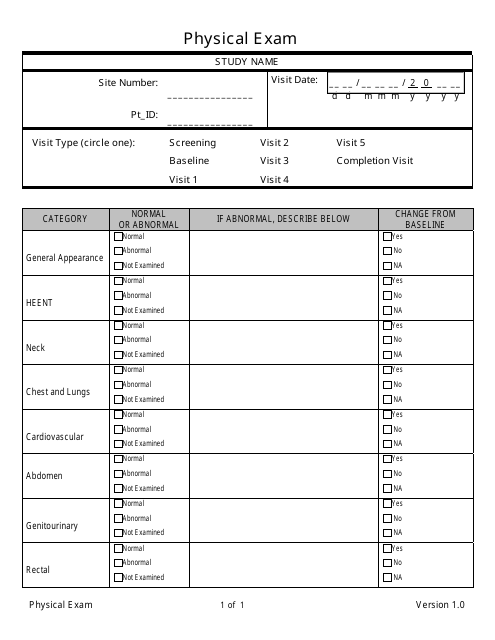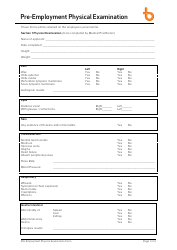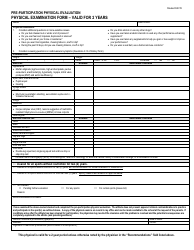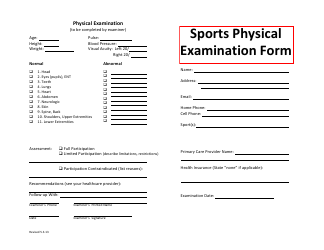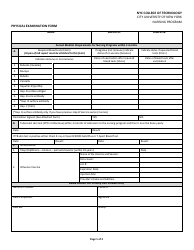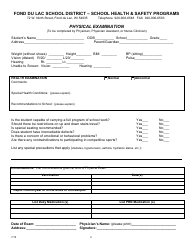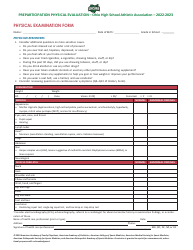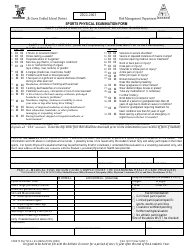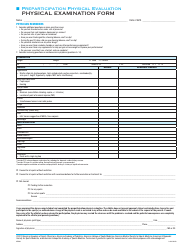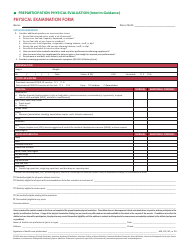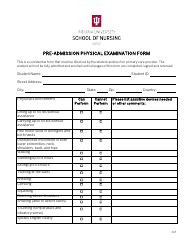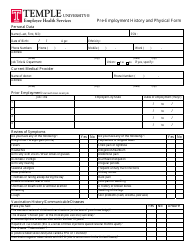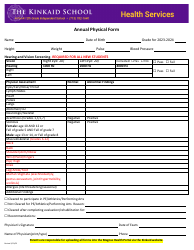Physical Exam
A physical exam is conducted by a healthcare professional to assess a person's overall health and detect any potential medical conditions. It typically involves checking vital signs, examining different body systems, and performing tests if necessary.
The individual receiving the physical exam typically files the document.
FAQ
Q: What is a physical exam?
A: A physical exam is a medical examination performed by a healthcare provider to assess a person's overall health and detect any potential medical issues.
Q: What is the purpose of a physical exam?
A: The purpose of a physical exam is to evaluate a person's physical condition, identify any current or potential health problems, and provide necessary preventive care.
Q: What happens during a physical exam?
A: During a physical exam, a healthcare provider will typically check your vital signs, record your medical history, perform a head-to-toe examination of your body, and may order certain tests or screenings.
Q: What are some common tests and screenings during a physical exam?
A: Common tests and screenings during a physical exam may include measuring blood pressure, checking heart rate and rhythm, assessing lung function, examining the eyes, ears, nose, and throat, and performing blood tests.
Q: How often should I have a physical exam?
A: The frequency of physical exams may vary depending on your age, overall health, and personal medical history. It is recommended to discuss with your healthcare provider to determine the appropriate schedule for you.
Q: Do I need to do anything to prepare for a physical exam?
A: Generally, there is no specific preparation required for a physical exam. However, it may be helpful to bring a list of medications you are currently taking and any concerns or questions you have for your healthcare provider.
Q: Can I request specific tests or screenings during a physical exam?
A: Yes, you can discuss any specific tests or screenings you would like to have with your healthcare provider during your physical exam.
Q: Are physical exams covered by insurance?
A: Many insurance plans cover the cost of a routine physical exam as they are considered preventive care. However, it is advisable to check with your insurance provider to confirm coverage and any associated costs.
Q: What should I do if I have concerns or questions after a physical exam?
A: If you have concerns or questions after a physical exam, it is best to follow up with your healthcare provider. They can provide further explanation or guidance based on the results of your exam.
